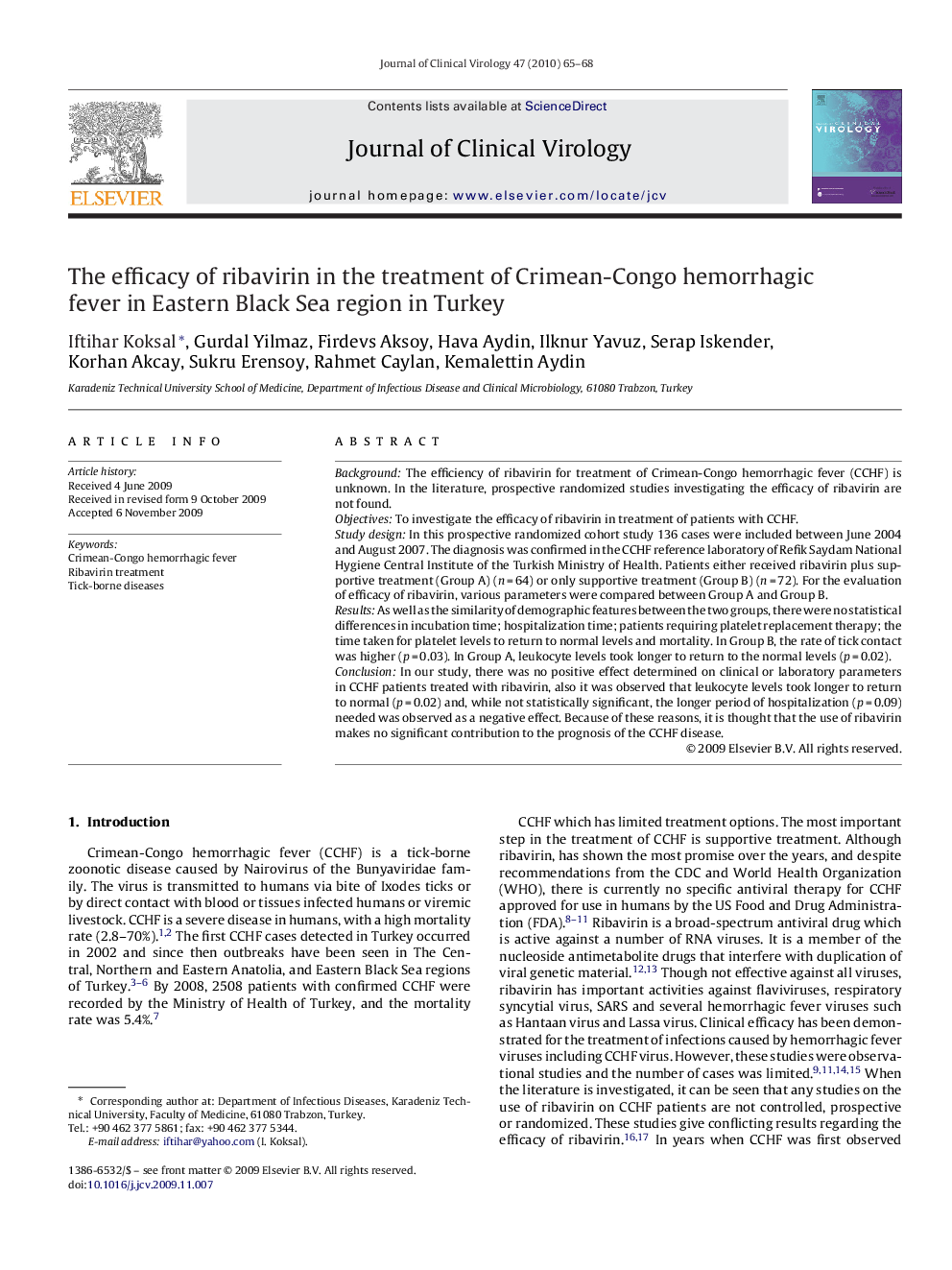| Article ID | Journal | Published Year | Pages | File Type |
|---|---|---|---|---|
| 3369519 | Journal of Clinical Virology | 2010 | 4 Pages |
BackgroundThe efficiency of ribavirin for treatment of Crimean-Congo hemorrhagic fever (CCHF) is unknown. In the literature, prospective randomized studies investigating the efficacy of ribavirin are not found.ObjectivesTo investigate the efficacy of ribavirin in treatment of patients with CCHF.Study designIn this prospective randomized cohort study 136 cases were included between June 2004 and August 2007. The diagnosis was confirmed in the CCHF reference laboratory of Refik Saydam National Hygiene Central Institute of the Turkish Ministry of Health. Patients either received ribavirin plus supportive treatment (Group A) (n = 64) or only supportive treatment (Group B) (n = 72). For the evaluation of efficacy of ribavirin, various parameters were compared between Group A and Group B.ResultsAs well as the similarity of demographic features between the two groups, there were no statistical differences in incubation time; hospitalization time; patients requiring platelet replacement therapy; the time taken for platelet levels to return to normal levels and mortality. In Group B, the rate of tick contact was higher (p = 0.03). In Group A, leukocyte levels took longer to return to the normal levels (p = 0.02).ConclusionIn our study, there was no positive effect determined on clinical or laboratory parameters in CCHF patients treated with ribavirin, also it was observed that leukocyte levels took longer to return to normal (p = 0.02) and, while not statistically significant, the longer period of hospitalization (p = 0.09) needed was observed as a negative effect. Because of these reasons, it is thought that the use of ribavirin makes no significant contribution to the prognosis of the CCHF disease.
